
Beth Carvalho
From Wikipedia, the free encyclopedia
Elizabeth Santos Leal de Carvalho (born May 5, 1946 in Rio de Janeiro) is a Brazilian samba singer, guitarist, cavaquinist and composer.
Biography
Carvalho was raised in a middle class family in Rio de Janeiro's South Zone. Her father, João Francisco Leal de Carvalho, was a lawyer. She grew up in contact with different types of music. Her father used to take her to samba school rehearsals, and her mother was an appreciator of classical music who encouraged her to become a ballerina. She started playing the guitar as a teenager, and got involved with the emerging Bossa Nova movement, winning a nationwide song contest on TV at the age of 19. Her first record was 1968's "Andança", carrying the song of same name which she had defended in a festival, which brought her to prominence. Although she started her career with Bossa Nova, that was an ephemeral phase which lasted less than one year - Beth started dedicating herself entirely to samba just as her fame began, working with legendary composers such as Nelson Sargento.
Carvalho is a very important artist in the history of samba, for she has celebrated and brought stronger light, with great reverence, to the work of legendary composers such as Cartola, Nelson Cavaquinho & Guilherme de Brito in times where they weren't receiving the attention they deserved. Almost all of her records have songs by these composers, among other legendary sambistas such as Nelson Sargento and the Old Guard of Portela. Her samba school is Mangueira, but that didn't stop her from revering and recording dozens of songs from composers of Portela, the other most traditional samba school in Rio de Janeiro.
Beth Carvalho performing in Paris during the year of Brazil in France. 2005
Later, in the late 1970s and early 80's, Beth helped bring to light the work of the incipient pagode artists from Cacique de Ramos, such as Almir Guineto, Jorge Aragão and the Fundo de Quintal group. Then, in 1983, she introduced him who would become the major samba name in the 90's and contemporary Brazil, Zeca Pagodinho. Beth has always cultured her habit of giving underrated composers the recognition they deserve, and for that she is regarded as the madrinha do samba (samba godmother), for always trying to get the songwriters known, even when they're not the ones singing the songs (something for which Cristina Buarque also deserves credit). She was a driving force in the modernization of samba in the 80s, and at the same time rejected commercial pop trends in samba arrangements, culturing the samba tradition.
In the 1990s, Beth's popularity wasn't the strongest, but she was always popular. She recorded an album dedicated to the samba from São Paulo, retorting the famous axiom which states that São Paulo is the grave of samba. In 1998 she recorded an album dedicated entirely to the pagode classics, Pérolas do Pagode (Pagode Pearls).
In the new millennium, Beth is working more than ever, releasing CDs and DVDs. With a career that spans 40 years, she is already a historical figure in Brazilian culture, and recognizedly the samba dame with the most substantial opus in Brazil, without diminishing others such as Clara Nunes and Cristina Buarque.
From Wikipedia, the free encyclopedia
Elizabeth Santos Leal de Carvalho (born May 5, 1946 in Rio de Janeiro) is a Brazilian samba singer, guitarist, cavaquinist and composer.
Biography
Carvalho was raised in a middle class family in Rio de Janeiro's South Zone. Her father, João Francisco Leal de Carvalho, was a lawyer. She grew up in contact with different types of music. Her father used to take her to samba school rehearsals, and her mother was an appreciator of classical music who encouraged her to become a ballerina. She started playing the guitar as a teenager, and got involved with the emerging Bossa Nova movement, winning a nationwide song contest on TV at the age of 19. Her first record was 1968's "Andança", carrying the song of same name which she had defended in a festival, which brought her to prominence. Although she started her career with Bossa Nova, that was an ephemeral phase which lasted less than one year - Beth started dedicating herself entirely to samba just as her fame began, working with legendary composers such as Nelson Sargento.
Carvalho is a very important artist in the history of samba, for she has celebrated and brought stronger light, with great reverence, to the work of legendary composers such as Cartola, Nelson Cavaquinho & Guilherme de Brito in times where they weren't receiving the attention they deserved. Almost all of her records have songs by these composers, among other legendary sambistas such as Nelson Sargento and the Old Guard of Portela. Her samba school is Mangueira, but that didn't stop her from revering and recording dozens of songs from composers of Portela, the other most traditional samba school in Rio de Janeiro.
Beth Carvalho performing in Paris during the year of Brazil in France. 2005
Later, in the late 1970s and early 80's, Beth helped bring to light the work of the incipient pagode artists from Cacique de Ramos, such as Almir Guineto, Jorge Aragão and the Fundo de Quintal group. Then, in 1983, she introduced him who would become the major samba name in the 90's and contemporary Brazil, Zeca Pagodinho. Beth has always cultured her habit of giving underrated composers the recognition they deserve, and for that she is regarded as the madrinha do samba (samba godmother), for always trying to get the songwriters known, even when they're not the ones singing the songs (something for which Cristina Buarque also deserves credit). She was a driving force in the modernization of samba in the 80s, and at the same time rejected commercial pop trends in samba arrangements, culturing the samba tradition.
In the 1990s, Beth's popularity wasn't the strongest, but she was always popular. She recorded an album dedicated to the samba from São Paulo, retorting the famous axiom which states that São Paulo is the grave of samba. In 1998 she recorded an album dedicated entirely to the pagode classics, Pérolas do Pagode (Pagode Pearls).
In the new millennium, Beth is working more than ever, releasing CDs and DVDs. With a career that spans 40 years, she is already a historical figure in Brazilian culture, and recognizedly the samba dame with the most substantial opus in Brazil, without diminishing others such as Clara Nunes and Cristina Buarque.








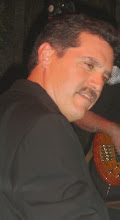





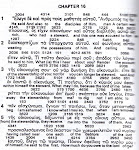

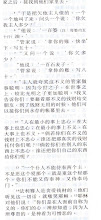






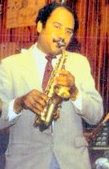







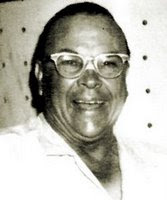




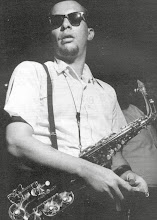




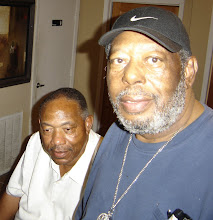













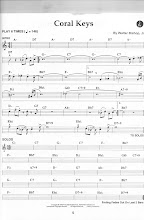

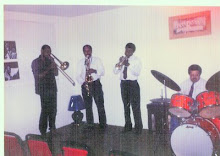






No comments:
Post a Comment